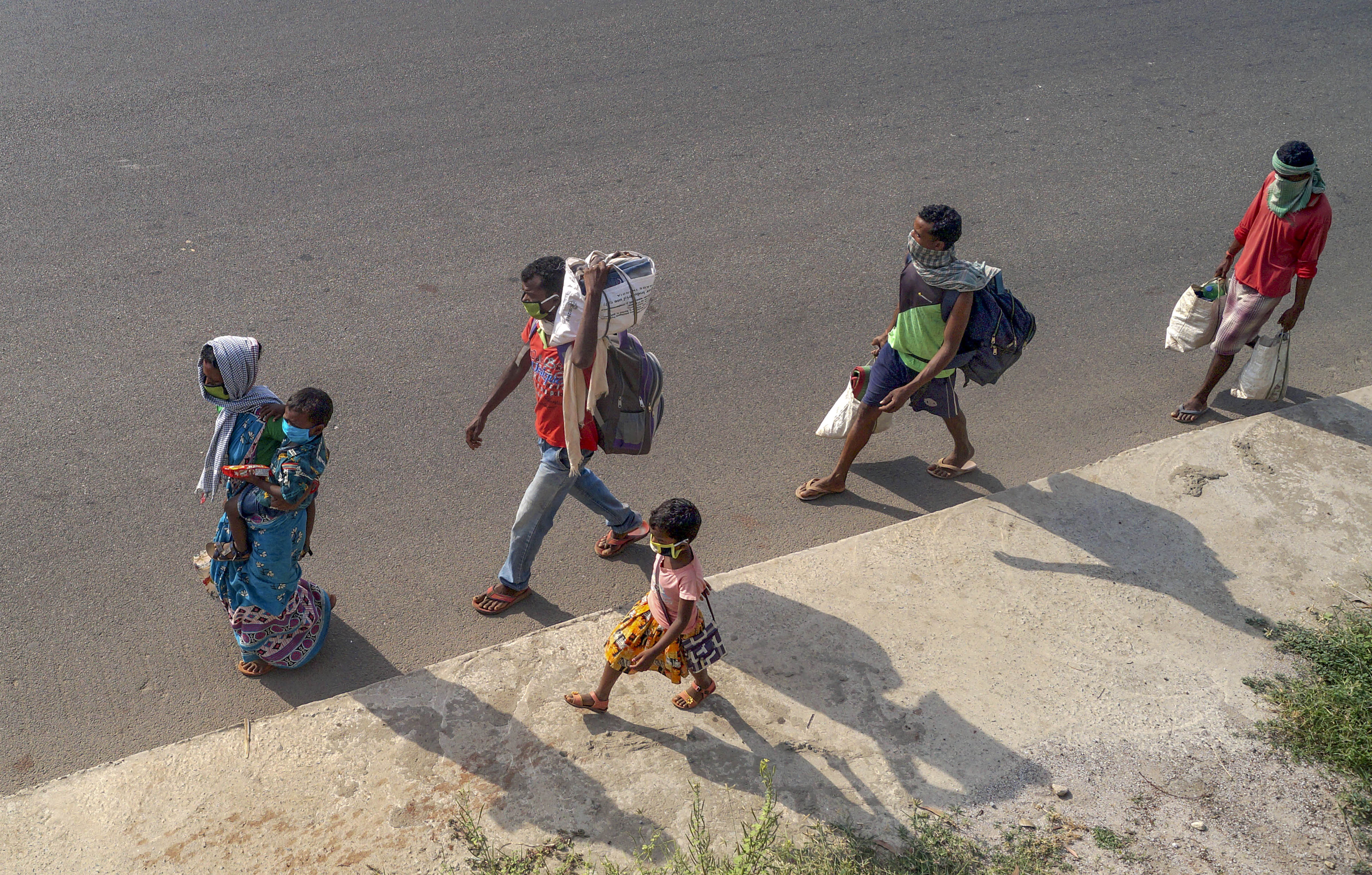Days, they rest. Nights, they walk. As the gruelling summer sets in, somehow dwarfed by the Covid-19 pandemic, the Indian hinterland is witnessing the heart-wrenching home-bound journeys of interstate migrant workers.
Three days ago, I witnessed a crowd on the outskirts of Nagpur — a sea of migrant workers coming from the south with no money, headed east, west, and north, walking in tranches of 50-100. Every day, they reach a toll plaza by early morning, rest through the day, and resume their march in the evening. If they get a truck or a lorry to climb into, fine. If they don’t, they set off on foot.
That evening, the silence in the pandal was stark. Fatigued people — without any fear of the virus — quietly ate the dal-rice being served by a few good Samaritans. A young man, yearning to reach his home in Odisha, said this was the best food he had eaten in two months. He won’t find work in his village, he said, but he will get back his social security and some dignity.
One India is happily locked inside comfortable homes. The other is on the move, walking long distances, lugging along kids and meagre belongings, to their native — nondescript — faraway, places. They are trudging along railway tracks, through the interiors and the jungles, avoiding the police, crossing multiple states, eating meagrely or staying hungry; they have been abandoned by the employers they came to work for.
Covid-19 came as a public health challenge. But we managed to turn it into a humanitarian crisis of epic proportions. A few states like Maharashtra are paying for tickets for trains or buses that have begun services, but for the thousands stranded at their workplaces, this is too little, too late. Many, I think, won’t return anytime soon, aware of the ill-treatment that has been meted out to migrants. Several have died of exhaustion during their risky journeys. Fifty tribal kids from South Bastar who went to pick chillies in northern Andhra Pradesh walked back home late April after covering 250-275 km. One girl died on the way.
Distress migration is not new. But we are discovering its enormity at the root of which lies the impoverishment of the countryside. No more than 20 cities draw migrant labourers from our poorest districts for work that lacks statutory or regulatory protection. This is beside the waves of seasonal migrants.
Post globalization, India saw a steady informalization of its workforce. It is also seeing states freezing whatever little labour regulations that exist. The Indian success story hides the dehumanization of its workforce; the virus has now laid it bare.
Almost absent in this entire tragedy is the ghost called ‘contractor’, who makes a decent cut from the sweat and blood of the toiling masses. A chain of middle men who earn hefty commissions on the labourers they pack off to different establishments. In the early 2000s, I had met one such contractor in Odisha’s Kalahandi. He sent hundreds of men and women from eastern Odisha’s hunger belt to brick kilns every year and earned a cut on every brick they made. His tribe has multiplied since. What is shocking is that the State not only shelters these wily operators but has a growing affinity for their insidious operations.










